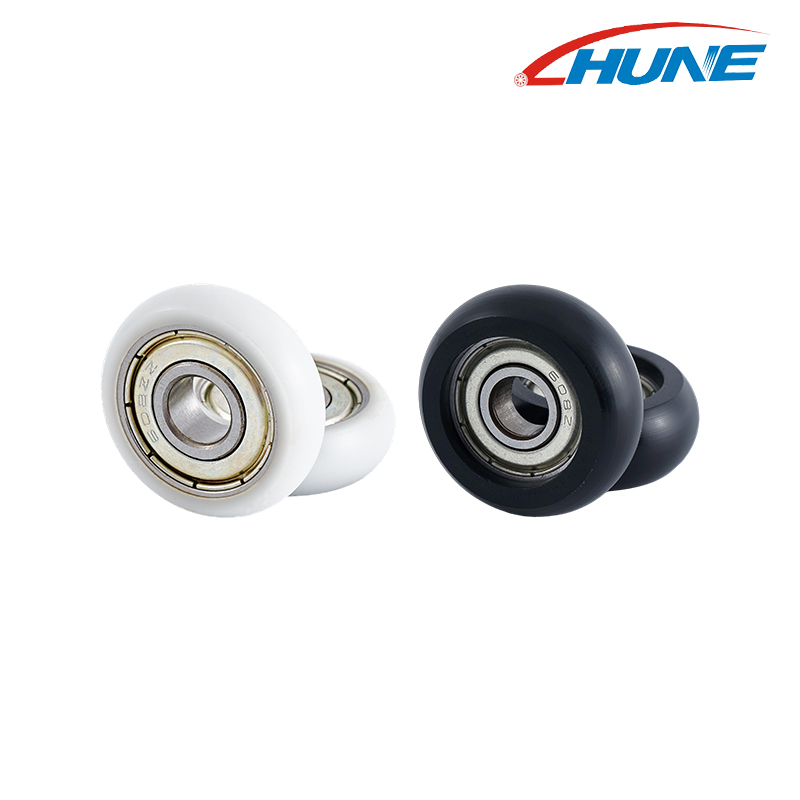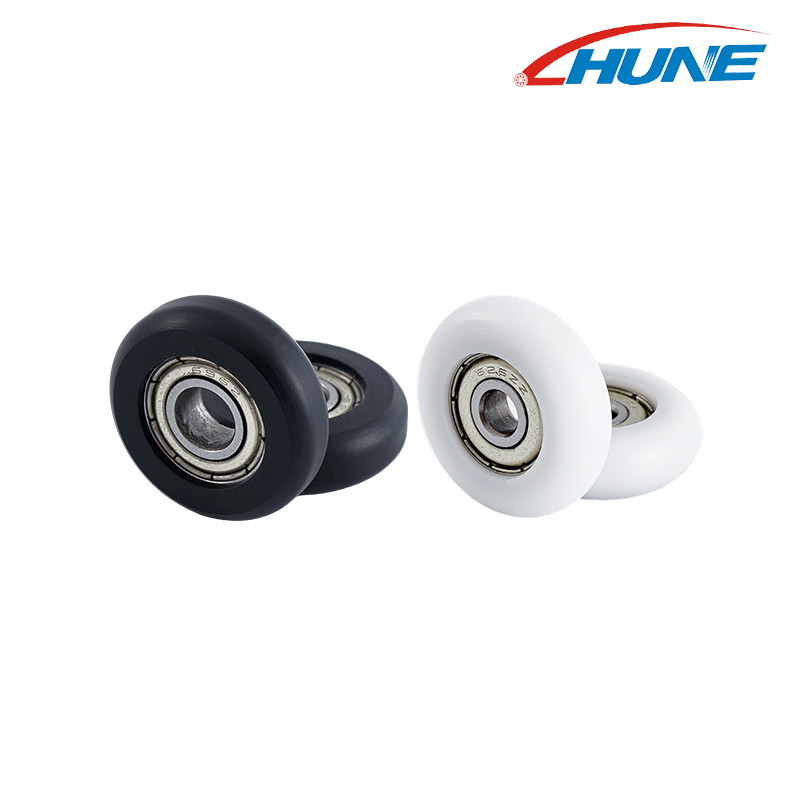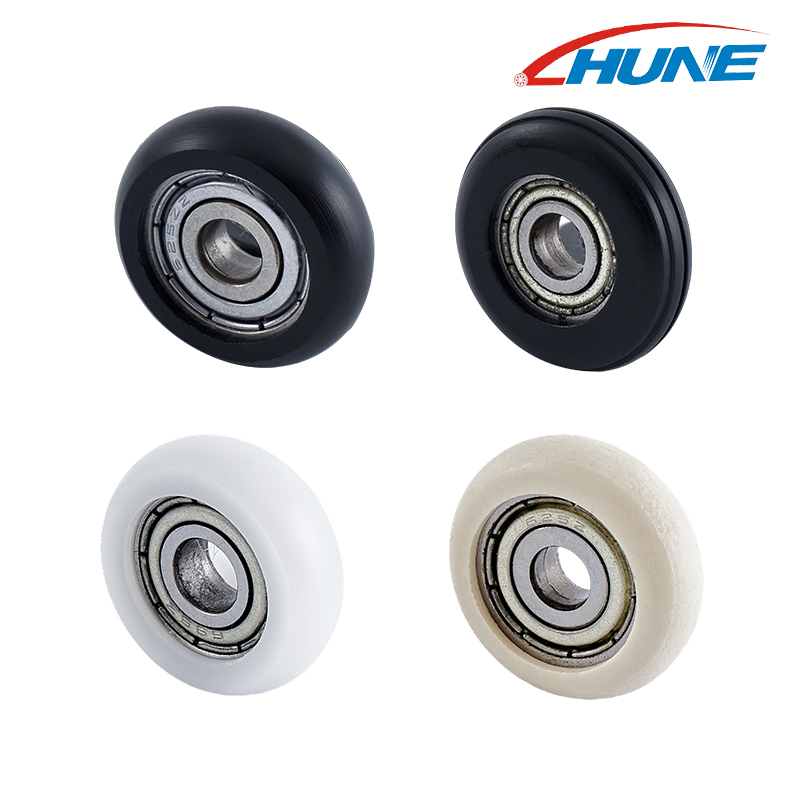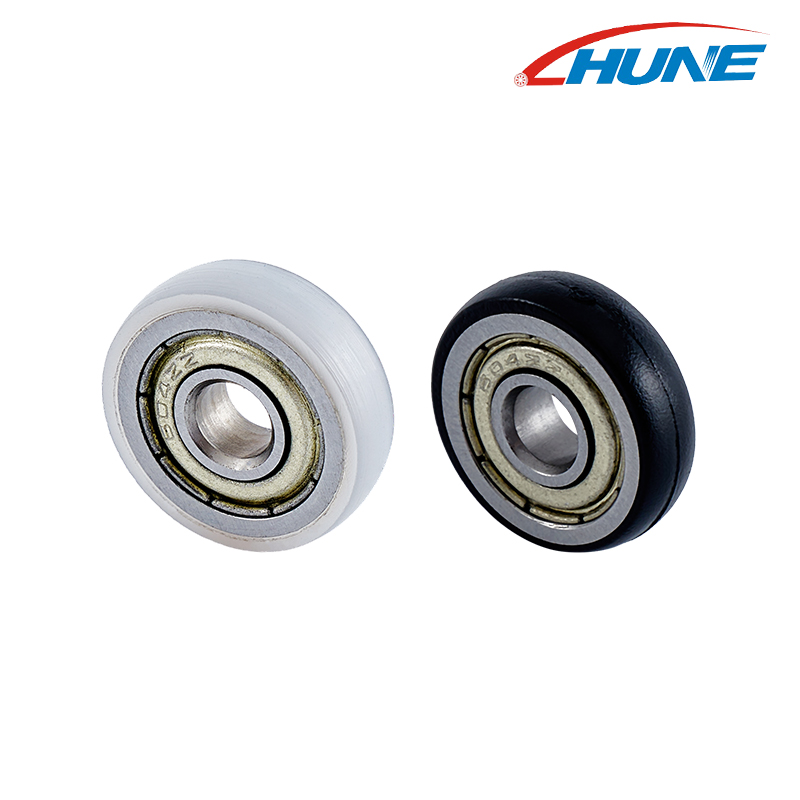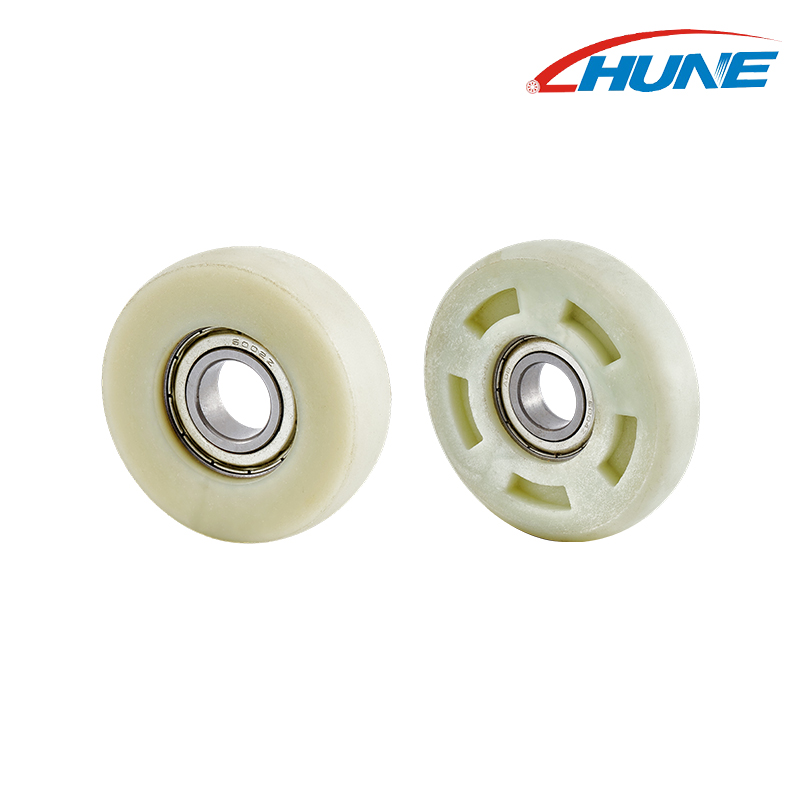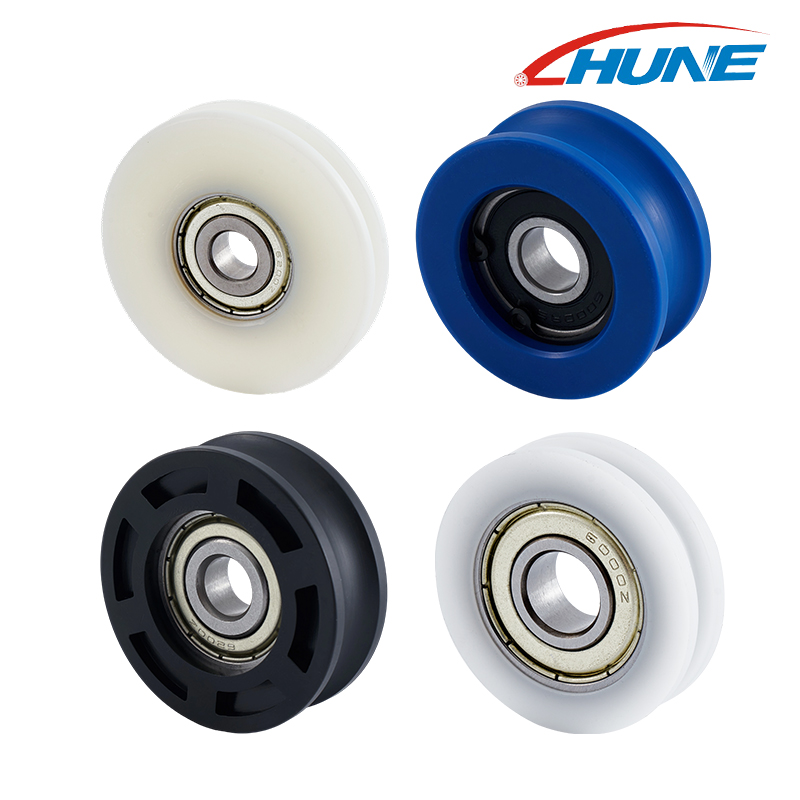A PA Pulley, made from polyamide (nylon), offers significant advantages over traditional materials like steel, aluminum, or plastic. Its lightweight yet strong construction reduces the overall load on machinery, improving efficiency and performance. PA provides excellent wear and abrasion resistance, ensuring long-lasting operation in high-speed and continuous-use systems. Its low friction surface allows smooth, quiet operation, while corrosion and chemical resistance make it ideal for harsh industrial environments. Additionally, PA maintains dimensional stability across a wide temperature range, outperforming many metals and plastics in demanding conditions. Cost-effective to produce and maintain, PA pulleys also support complex designs with minimal material waste. These qualities make PA pulleys a reliable, durable, and efficient choice for applications in automotive systems, conveyors, industrial machinery, and more, offering enhanced performance and reduced operational costs.
What is a PA Pulley?
A PA Pulley, or Polyamide Pulley, is a type of mechanical pulley made from polyamide (commonly known as nylon). These pulleys are widely used in industrial, automotive, and machinery applications due to their combination of lightweight construction, strength, and durability. PA pulleys are designed to transmit motion and power efficiently while maintaining smooth operation, even under continuous or high-speed use. Unlike traditional metal or plastic pulleys, Nylon Pulleys offer enhanced corrosion resistance, low friction, and minimal maintenance requirements, making them an ideal choice for modern mechanical systems. Their ability to withstand harsh environmental conditions, such as exposure to moisture, chemicals, and fluctuating temperatures, ensures long-lasting performance in a variety of industries.
Durability and Performance of PA Pulleys
PA pulleys are renowned for their durability and high performance. Made from polyamide, these pulleys provide excellent wear and abrasion resistance, allowing them to operate reliably in high-speed, high-load, or continuous-use environments. The low friction coefficient of PA materials reduces energy loss during operation and ensures smooth, quiet performance, which is especially valuable in industrial and automotive systems.
In addition, PA pulleys maintain dimensional stability across a wide temperature range, from low to moderately high temperatures, which prevents deformation and ensures consistent mechanical performance. Their resistance to corrosion and chemical exposure further enhances their lifespan, reducing downtime and maintenance costs. This combination of properties makes Nylon Pulleys a reliable and efficient solution for demanding applications.
Advantages of PA Pulley Over Other Materials
Compared to traditional materials such as steel, aluminum, or conventional plastics, PA pulleys offer several advantages:
Lightweight and High Strength – PA pulleys reduce the overall weight of machinery while providing sufficient mechanical strength to handle heavy loads.
Corrosion and Chemical Resistance – Unlike metal pulleys, PA pulleys do not rust or corrode when exposed to water, oils, or industrial chemicals.
Low Friction and Noise Reduction – The natural low friction of polyamide ensures smooth, quiet operation with less wear on belts or ropes.
Cost-Effectiveness – PA pulleys are easier and cheaper to manufacture, with minimal material waste and lower long-term maintenance costs.
Versatility in Design – Polyamide allows for custom shapes and complex grooves, making it suitable for a wide range of applications.
These advantages make PA pulleys a preferred choice for automotive engines, conveyor systems, industrial machinery, and material handling equipment.
Benefits of Using PA Pulley
Using a PA Pulley provides multiple operational and economic benefits:
Extended Service Life: High wear resistance and chemical stability ensure long-term reliability.
Energy Efficiency: Lightweight construction and low friction reduce energy consumption in mechanical systems.
Reduced Maintenance: Resistance to corrosion and abrasion minimizes maintenance requirements and associated costs.
Enhanced Safety: Durable and stable under various operating conditions, Durable Pulleys reduce the risk of mechanical failures.
Adaptable Applications: Suitable for diverse industries, including automotive, industrial machinery, conveyors, textiles, and more.
Types of PA Pulleys and Their Applications
Solid PA Pulleys
Solid PA pulleys are made from a single piece of polyamide, providing high strength and durability. They are typically used for applications where the pulley is not exposed to excessive wear or extreme mechanical stress. These pulleys are ideal for moderate-speed operations and are often used in conveyors, industrial machinery, and automotive systems.
Applications:
Conveyor systems
Light-duty mechanical systems
Small industrial machines and equipment
Hollow PA Pulleys
Hollow PA pulleys feature a hollow center, reducing the weight of the pulley without compromising its strength. These are often used in high-speed systems where reducing weight is essential, such as in high-speed conveyors and automotive engines.
Applications:
High-speed conveyors
Automotive systems (e.g., timing belts)
Automated packaging systems
Single Groove PA Pulleys
Single groove PA pulleys are designed with one groove to accommodate a single belt, making them suitable for simpler mechanical systems. These pulleys are widely used in applications that require minimal power transmission or where space is constrained.
Applications:
Automotive engines
Small machinery
Light-duty material handling
Multi-Groove PA Pulleys
Multi-groove Plastic Pulleys are designed with multiple grooves to handle multiple belts simultaneously, making them ideal for systems that require high power transmission. These pulleys are commonly found in heavy-duty industrial machinery and automotive applications where multiple belts drive various components.
Applications:
Heavy-duty conveyor systems
Large industrial machines
Complex automotive systems (e.g., power steering, air conditioning)
Custom PA Pulleys
Custom PA pulleys are designed to meet specific requirements and may include integrated features such as unique shapes, custom grooves, or specialized hubs. These pulleys are tailored to fit particular applications that need specific performance features.
Applications:
Specialized industrial machinery
Conveyor belts with unique specifications
Custom automotive applications (e.g., high-performance engines)
| Type of PA Pulley | Description | Applications |
|---|---|---|
| Solid PA Pulleys | Made from a single piece of polyamide, offering high strength and durability. Ideal for moderate-speed operations. | - Conveyor systems - Light-duty mechanical systems - Small industrial machines and equipment |
| Hollow PA Pulleys | Feature a hollow center to reduce weight without compromising strength. Commonly used in high-speed systems. | - High-speed conveyors - Automotive systems (e.g., timing belts) - Automated packaging systems |
| Single Groove PA Pulleys | Designed with one groove to accommodate a single belt, suitable for simpler mechanical systems. | - Automotive engines - Small machinery - Light-duty material handling |
| Multi-Groove PA Pulleys | Designed with multiple grooves to handle multiple belts, ideal for high power transmission. Used in heavy-duty machinery. | - Heavy-duty conveyor systems - Large industrial machines - Complex automotive systems (e.g., power steering, air conditioning) |
| Custom PA Pulleys | Designed to meet specific requirements with unique shapes, custom grooves, or specialized hubs. Tailored for specific applications. | - Specialized industrial machinery - Conveyor belts with unique specifications - Custom automotive applications (e.g., high-performance engines) |
Manufacturing Process of PA Pulleys
1. Injection Molding Process
Injection molding is one of the most common methods for producing PA pulleys. In this process, polyamide granules are heated until they melt, then injected into a mold under high pressure to form the shape of the pulley. After cooling, the pulley is removed from the mold and undergoes inspection and quality control.
Advantages of Injection Molding:
High precision and accuracy in dimensions
Suitable for large production runs
Ability to create complex shapes and designs
Applications:
High-volume production of standard pulleys
Manufacturing of single-groove, multi-groove, and hollow PA pulleys
Custom designs for specific industry needs
2. CNC Machining Process
For custom PA pulleys or those requiring high precision, CNC machining is used. In this process, blocks of PA material are precisely cut and shaped using computer-controlled machinery. This allows for intricate designs and custom features like integrated grooves, hub designs, or special shapes.
Advantages of CNC Machining:
High precision and flexibility in design
Ideal for small production runs and custom applications
Ability to produce complex pulley features
Applications:
Custom-made multi-groove pulleys
Specialized pulleys for industrial machines or automotive systems
3. Extrusion Process
The extrusion process involves forcing heated PA material through a mold to create the pulley’s shape, followed by cooling and cutting to the desired length. This method is typically used for hollow PA pulleys or pulleys with larger diameters.
Advantages of Extrusion:
Suitable for producing larger pulleys
Cost-effective for certain designs and sizes
Allows for high-strength pulleys
Applications:
Hollow PA pulleys for conveyor systems
Large-diameter pulleys for heavy-duty machinery
4. Quality Control and Testing
Regardless of the manufacturing process, PA pulleys undergo stringent quality control to ensure they meet industry standards. Testing typically includes:
Dimensional Accuracy: Ensuring that the pulley meets the exact specifications for size and shape.
Wear Resistance Testing: Verifying the pulley's ability to handle friction and wear in real-world applications.
Load Testing: Ensuring that the pulley can withstand the intended load without failure.
Chemical and Temperature Resistance Testing: Verifying that the Polyamide Pulley performs well under various environmental conditions.
How PA Pulley Reduces Noise and Friction in Mechanical Systems
1. Low Friction Properties of PA Pulley
Polyamide, or nylon, is inherently low friction, making it an ideal material for pulleys. Unlike metal pulleys, which can generate high friction during operation, PA pulleys provide a slick surface that reduces resistance between the pulley and the belt or rope. The reduced friction translates into several operational benefits:
Less Wear and Tear: By minimizing friction, PA pulleys experience less wear on both the pulley and the connected components (such as belts and bearings), which increases the lifespan of the entire system.
Energy Efficiency: Reduced friction leads to lower energy consumption because the system requires less force to operate, resulting in improved overall efficiency and reduced operational costs.
Smoother Movement: The low-friction surface of Nylon Pulleys allows for smoother belt or cable movement, ensuring less vibration, slippage, and jerking, which could otherwise contribute to premature wear.
This ability to reduce friction without sacrificing strength or performance is one of the primary reasons why PA pulleys are used in a wide range of industrial, automotive, and mechanical applications.
2. Noise Reduction Capabilities of PA Pulley
PA pulleys' low friction properties also play a significant role in reducing noise levels in mechanical systems. Noise is typically generated by the friction between moving parts, and the smoother the operation, the quieter the system. Here's how PA pulleys contribute to a quieter work environment:
Smooth Operation: The smooth, low-friction surface of polyamide pulleys ensures that belts or cables move seamlessly along the pulley, minimizing the vibrations and oscillations that lead to noise generation. In high-speed systems, this results in a significant reduction in operational noise compared to metal or traditional plastic pulleys.
Dampening Effect: Polyamide materials naturally possess vibration-damping properties. These dampening qualities help absorb and reduce the transmission of sound waves, further minimizing noise output during pulley operation.
Quieter Machinery: In high-speed industrial applications, PA pulleys ensure that equipment runs with minimal noise, which is especially important in environments like textile manufacturing, automotive systems, and precision machinery, where high-speed rotations and continuous movements are common.
The use of Nylon Pulleys can significantly enhance the work environment, leading to quieter factory floors, reduced noise pollution, and improved worker comfort, which is particularly important in industries that value noise reduction for both safety and employee well-being.
3. Reduced Vibration and Enhanced Stability
Along with friction and noise, vibration is another factor that can affect the stability and performance of mechanical systems. Excessive vibration not only causes noise but can also lead to misalignment and structural damage over time. The low-friction surface and resilience of PA pulleys contribute to minimizing vibrations in the following ways:
Balanced Load Distribution: PA pulleys, especially in multi-groove designs, help distribute the load more evenly across the pulley surface. This balanced load distribution ensures a smoother and more stable operation, preventing the occurrence of imbalances that can cause vibrations.
Prevention of Slip and Slippage: The precise fit of PA pulleys with the belts or ropes ensures that there is no slippage, which is a common cause of unwanted vibrations. In metal pulleys, improper tension can lead to slip, increasing friction and creating noise, but PA pulleys maintain constant tension, minimizing this risk.
Reduction of Mechanical Stress: By reducing friction and minimizing vibration, PA pulleys also reduce mechanical stress on the motor and other system components, leading to more reliable and consistent performance.
This reduction in vibration not only improves system efficiency but also ensures the long-term reliability of the machinery, decreasing the likelihood of damage or failure due to repeated stress and vibrations.
4. Longevity and Maintenance Savings
The reduced friction and noise levels in PA pulleys contribute to overall lower maintenance costs and longer service life for mechanical systems.
Less Frequent Wear and Replacement: With reduced wear and lower friction, the Polyamide Pulley does not need to be replaced as frequently as metal pulleys, which are prone to corrosion and rapid wear. This results in cost savings on replacement parts and maintenance labor.
Improved Component Lifespan: PA pulleys' resistance to wear also extends the life of associated components like belts, bearings, and shafts. Since the system operates more smoothly and quietly, there is less strain on these parts, resulting in fewer breakdowns and repairs.
Cost-Efficiency in Long-Term Operations: The durability and noise-reducing properties of PA pulleys help businesses reduce operational downtime and extend the lifespan of their machinery, making them a more cost-effective choice in the long run.
How to Choose the Right PA Pulleys?
Selecting the right PA pulley for your mechanical system is crucial to ensure optimal performance, efficiency, and longevity. The choice of polyamide (PA) pulleys should be based on several key factors, each of which can impact the efficiency, durability, and cost-effectiveness of your machinery.
1. Understand Your Application Requirements
The first step in selecting the appropriate Polyamide Pulley is understanding the nature of your application. PA pulleys come in various designs, such as solid, hollow, single groove, multi-groove, and custom pulleys, each designed to meet different operational needs. For example:
If your system involves high-speed operations, consider using hollow PA pulleys to reduce weight.
For applications requiring high power transmission, multi-groove PA pulleys are more suitable.
Single groove pulleys work best for simpler systems with minimal power transmission.
Make sure you assess the requirements of your system, including speed, load, and space constraints, before selecting the pulley.
2. Consider the Operating Environment
The environmental conditions in which the pulley will operate are another important factor to consider. PA pulleys offer excellent chemical resistance, corrosion resistance, and dimensional stability under varying temperature conditions. However, some applications may require additional considerations, such as exposure to chemicals, moisture, or extreme temperatures. Choose a Polyamide Pulley that can withstand these factors and maintain long-term performance.
For wet or corrosive environments, a PA pulley will provide superior protection compared to metal alternatives.
High-temperature applications may require specific grades of PA material that can withstand temperature fluctuations without losing strength or shape.
3. Check Load-Bearing Capacity
PA pulleys are capable of handling varying levels of load depending on their design and material grade. Ensure that the selected pulley has the correct load-bearing capacity to avoid premature wear and failure. Review the manufacturer's specifications to verify that the pulley can support the required load for your application.
For heavy-duty systems, multi-groove Plastic Pulleys are ideal as they allow for the simultaneous operation of multiple belts, ensuring optimal load distribution.
4. Choose Between Standard or Custom DesignWhile
standard Durable Pulleys are sufficient for many common applications, some systems may require custom-designed pulleys to meet unique performance criteria. Custom pulleys can include features such as special grooves, hubs, or shapes to better integrate with specific systems.
If your application requires unique specifications, consult with a Durable Pulley manufacturer to explore custom options that meet your needs.
Why Hune PA Pulley?
When it comes to choosing a reliable and high-performance Plastic Pulley, Hune bearing pulleys stand out as a good choice in the market.
1. Premium Material Quality
Hune pulleys are made from high-quality polyamide (PA) materials that provide exceptional strength, durability, and wear resistance. These pulleys are engineered to handle high loads, resist wear, and maintain their performance even in challenging environments.
2. Customization Options
Hune offers a wide range of custom-designed bearing pulleys, tailored to meet the unique specifications of your system. Whether you need multi-groove pulleys for complex power transmission or specialized sizes and groove patterns, Hune can design pulleys to fit your exact requirements.
3. Corrosion and Chemical Resistance
One of the standout features of Hune Polyamide Pulleys is their ability to perform in harsh conditions, such as exposure to moisture, oils, and industrial chemicals. Unlike metal pulleys, Hune PA pulleys do not rust, corrode, or degrade in corrosive environments, making them a reliable option for long-term performance.
4. Precision Engineering and Reliability
Hune PA pulleys are manufactured with precision engineering and undergo stringent quality control processes. This ensures that every pulley meets the highest standards for dimensional accuracy, load capacity, and durability, making them an excellent choice for both standard and high-performance machinery.
5. Cost-Effectiveness
Despite their high performance, Hune bearing pulleys are more cost-effective than traditional metal pulleys. They require less maintenance, have longer service lives, and are energy-efficient, all of which contribute to reduced long-term operating costs.
Choosing the right Plastic Pulley can significantly enhance the efficiency and reliability of your mechanical systems. By considering factors such as application requirements, environmental conditions, load capacity, and customization needs, you can select a Durable Pulley that best suits your specific use case.
If you're looking for reliable, high-quality Polyamide Pulleys that deliver exceptional performance in even the most demanding environments, Hune PA pulleys are a proven solution. With superior material quality, customization options, and cost-effectiveness, Hune PA pulleys are an investment in long-term reliability and efficiency.






 English
English  Español
Español  日本語
日本語 